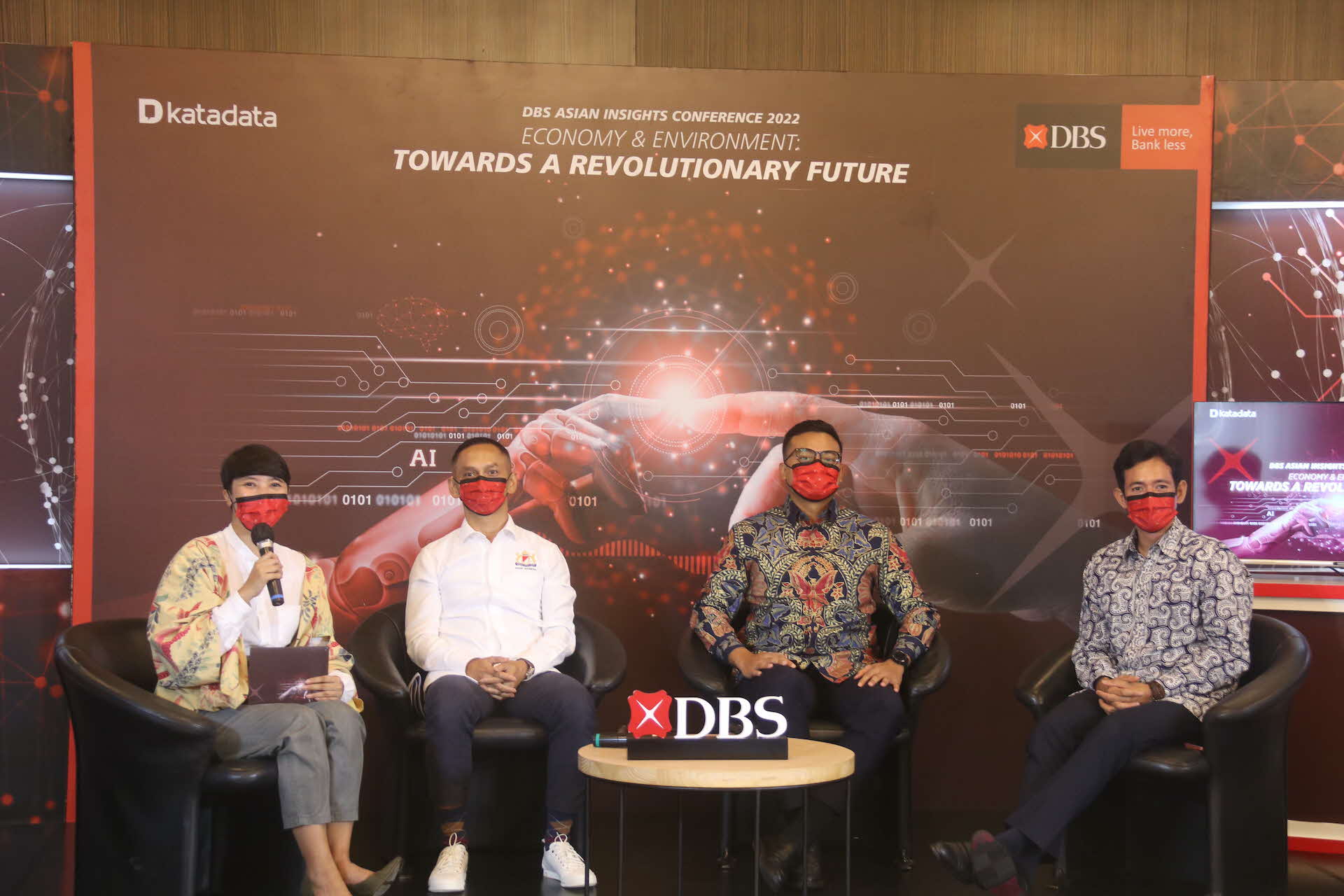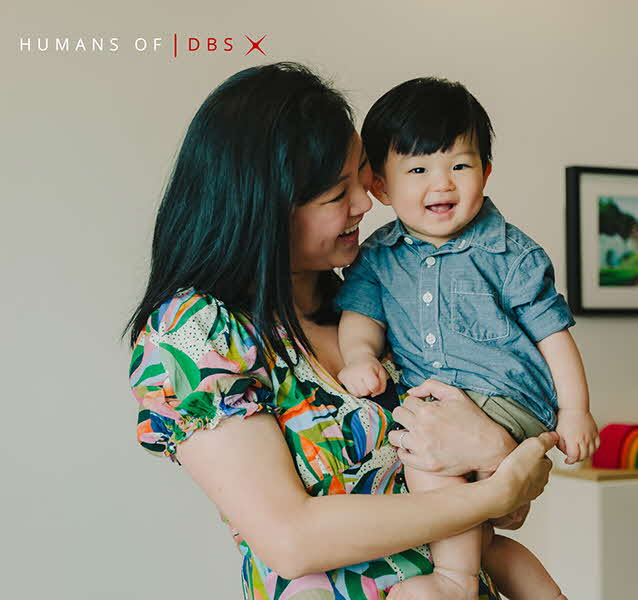DBS Asian Insights Conference 2022: KADIN collaborates with corporations for a greener future | Bahasa
Indonesian government expects to reach net zero emissions target by 2060
KADIN encourages collaboration to build Indonesia's net zero ecosystem

Director General of Climate Change Control Ir. Laksmi Dewanthi, M.A. said, “In November 2021, the 26th Conference of the Parties (COP26) was held in Glasgow, Scotland. In general, the agenda of COP26 is to conduct negotiations and discuss the latest issues that will be included in the context of global climate change, including in Indonesia. Pursuant to the discussions at the conference, it was agreed that we will build a climate change agenda to limit the increase in the average temperature of the Earth’s surface globally to no more than one and a half degrees Celsius to support the plan to reach net zero emissions by around 2050."
Countries in South Asia and Southeast Asia, including Indonesia, are the most vulnerable to climate change impacts. According to an estimate of the National Development Planning Agency (Bappenas), climate change could cause IDR 544 trillion in economic losses to Indonesia until 2024. The government is determined to reach the net zero emissions target by 2060 through various efforts, including through collaboration with the Indonesian Chamber of Commerce and Industry (KADIN).
Chairman of the Standing Committee on New & Renewable Energy of KADIN Muhammad Yusrizki said, “Inspired by the government's efforts to achieve the net zero emissions target by 2060, KADIN launched a subnational movement through a platform called KADIN Net Zero Hub. In general, net zero has been discussed widely among the public. We want to turn it into real action by collaborating with private companies. We also collaborate with several organisations that have met international standards to create guides, modules and programmes to increase understanding of private companies. This effort is important to build Indonesia's net zero ecosystem and support the government's efforts to achieve the net zero emissions target.”
Executive Director of Partnership for Indonesia’s Sustainable Agriculture (PISAgro) Insan Syafaat stated that PISAgro is also embracing farmer groups across Indonesia, particularly in small towns, so that they can get education and training. This is an effort to modernise the work ethic and mindset of farmers so that they have a high level of competitiveness. PISAgro as a meeting place for various stakeholders in the agricultural sector is committed to improving the realisation of a sustainable agricultural sector in Indonesia through a partnership model between the public and private sectors.
“Since 2011, PISAgro has maintained the commitment to food security, which is linked to sustainability and climate protection. The commitment is implemented through the Inclusive Closed-Loop or a closed partnership ecosystem in which PISAgro members are encouraged to work together to help provide comprehensive education and training to farmer groups. The training is also useful as a means to integrate farmers into the supply chain of a more professional agricultural industry. We do this through several working groups so that we can ensure that the Inclusive Closed-Loop partnership model can be implemented properly. To date, there are eleven working groups that are directly related to the community,” said Insan Syafaat.
Despite efforts to achieve net zero emissions, there is not much time left to pursue emission reduction targets and keep temperature rises below 1.5°C. According to a DBS report, Asian Insight SparX - Environmental, Social and Governance: Turning Carbon Into Gold, greenhouse gas emissions in developing countries, especially in Asia-Pacific, tend to increase. The main contributor to emissions is coal-fired power plants.
Head of Corporate Strategy of PT TBS Energi Utama Tbk Nafi Achmad Sentausa said the company is changing its business focus from coal to new renewable energy. In terms of technology, energy is a sector that has not been disrupted much. This certainly inspires PT TBS Energi Utama to explore various possibilities as well as support the government's efforts to achieve the net zero emissions target by 2060."
“Initially, we saw the potential for development in the electricity industry, then we decided to re-examine and see the possibilities that could be developed from the company’s perspective to keep it running in the hundreds of years to come. We are preparing a new revenue stream to replace our existing coal mines. Of course, with Indonesia's current net zero emissions commitment, we are determined that by 2030, TBS will become a carbon-neutral company. We expect around 80% of the company's revenue in 2025 will be contributed by green business. Given the recent increase in coal prices, we plan to leverage the commodity, recycling it and investing in TBS’s new business," Nafi Achmad Sentausa added.
In terms of implementation, there are several challenges faced by all parties. Insan Syafaat said that to provide a comprehensive solution, it is difficult to find suitable actors that represent various commodities to provide the right education, especially in the agricultural sector. In addition, there is a need for capacity building that can open access for farmers to sell their agricultural products as well as financing to support the growth of the agricultural industry and to ensure that it remains sustainable.
Muhammad Yusrizki explained that the main challenge faced to achieve net zero emissions is the lack of the right mindset in every society. Therefore, KADIN undertook the task of building public awareness of and mindset for the need for corporations to start implementing sustainable business strategies. Thus, KADIN can provide education on energy efficiency and make it a company commitment to be applied individually in everyday life.
“If the entrepreneur's mindset is not fully developed, sustainable energy is considered of tertiary importance and business interests rather than sustainability will get top priority. It’s true that it is quite costly for companies to switch to a sustainable form of business. However, companies that make this their business goal can take advantage of efforts to use sustainable energy as a long-term investment,” said Muhammad Yusrizki.
“Like two sides of a coin, we see there are challenges as well as opportunities. There are challenges to continue integrating climate change policies into various sectors and sub-sectors. In addition, there are other challenges related to how to meet funding and investment, as well as geopolitical challenges at the national level. On the other hand, there are opportunities that we can take advantage of considering that there are various sectors such as energy, forestry, and industry that have started the transition by carrying out activities with lower greenhouse gas emissions. This supports the government's agenda, which set aside funds to address climate problems (climate budget tagging) in the State Budget (APBN), offers attractive mitigation and adaptation packages for investors, develops green bonds and green sukuk as funding innovation, creates an environmental fund management body, and develops global funding sources,” said Ir. Lakshmi Dewanthi, M.A..
The Asian Insights Conference is an annual conference held by Bank DBS Indonesia that brings together leaders with global mindsets to discuss the opportunities and challenges of change in Indonesia, especially in the recovery period and the new normal phase in the midst of the COVID-19 pandemic. Business people, investors, and the wider community will learn about the government’s strategy to deal with the pandemic and about Indonesia’s and global economic conditions. The conference is expected to turn worries and doubts into actions and strategic decisions regarding the future direction of businesses.
The fourth session of Asian Insights will take place on March 23 and can be viewed at the following link. Information on the 2022 Asian Insights Conference is available on Instagram: @dbsbankid and here.
[END]
About DBS
DBS is a leading financial services group in Asia with a presence in 18 markets. Headquartered and listed in Singapore, DBS is in the three key Asian axes of growth: Greater China, Southeast Asia and South Asia. The bank's "AA-" and "Aa1" credit ratings are among the highest in the world.
Recognised for its global leadership, DBS has been named “World’s Best Bank” by Euromoney, “Global Bank of the Year” by The Banker and “Best Bank in the World” by Global Finance. The bank is at the forefront of leveraging digital technology to shape the future of banking, having been named “World’s Best Digital Bank” by Euromoney and the world’s “Most Innovative in Digital Banking” by The Banker. In addition, DBS has been accorded the “Safest Bank in Asia” award by Global Finance for 13 consecutive years from 2009 to 2021.
DBS provides a full range of services in consumer, SME and corporate banking. As a bank born and bred in Asia, DBS understands the intricacies of doing business in the region’s most dynamic markets. DBS is committed to building lasting relationships with customers, and positively impacting communities through supporting social enterprises, as it banks the Asian way. It has also established a SGD 50 million foundation to strengthen its corporate social responsibility efforts in Singapore and across Asia.
With its extensive network of operations in Asia and emphasis on engaging and empowering its staff, DBS presents exciting career opportunities. For more information, please visit www.dbs.com.

